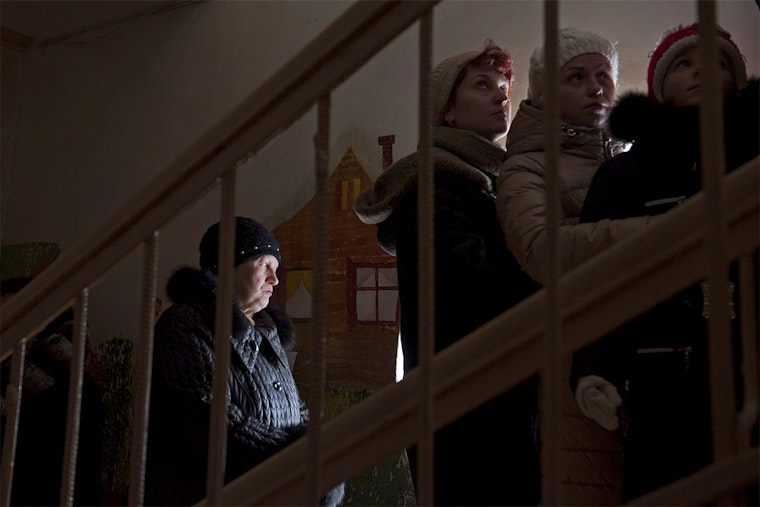Ukraine’s Grassroots Movement of Job Finders
By Iryna Koval

It was because of my participation in the Maidan protests a year ago that I lost my job. Over 100 of us were fired, in fact, including the HR department. I was spending my nights at the Maidan, just like many of my colleagues from HR, and at a certain point we were just informed: as of tomorrow, you no longer work here.
This happened to a lot of protesters—after the Maidan, it was simply impossible for them to go back to their jobs. So a friend of mine posted an idea on Facebook: “We should help those who are now unemployed find new jobs.” Within a couple of days there were 50 or 60 volunteers: HR professionals, recruiters, most of them women. It became a way we could contribute by doing what we do best.
We started with the Maidan protesters. Then we realized we also needed to help displaced people from Crimea who didn’t have homes to return to, and displaced people from Eastern Ukraine, as well. We started consulting with people in the IT tent at the Maidan as a purely volunteer force. Today, one year later, we’ve worked with something like 4,000 clients.
We have a database of employers who provide vacancies for us, from small businesses that need one or two employees to large corporations that need dozens. Basically, we are filling the gap left by government. Small and medium businesses in Crimea are in decline, and the state-sponsored job centers offer mostly low-pay positions. The scope of the positions offered by government is also very narrow and often IDPs’ qualifications are different than what’s required because of where they’re from.
For instance, most of the people coming from Crimea used to work in tourism. People from the eastern region worked in heavy industry. We don’t have jobs like that here in Kyiv. There’s no way these people could realize their potential now that they’ve been forced to move. So we do education, career consulting, and employment trainings.
Then there’s the issue of stigmatization. A Kyiv employer may think, “If I employ a guy from Donetsk, he could steal my money and go back there, because he’s temporary, he’s of unknown status and could leave anytime.” Or for a woman coming from the east, an employer might think, “Why should I employ a woman whose husband is now fighting against my brother in the east?” But you can’t say that someone represents eastern Ukraine just because they’re from there. You can’t generalize like that. They are the same as us, Ukrainians in crisis—just a different kind of crisis.
This is why we don’t ask people about their political views. It’s not about good people in the west and bad people in the east. A lot of people in the east don’t understand the Maidan, and I understand why they don’t understand the Maidan. The information that was put out there was very different than what we heard here. There was a lot of propaganda.
Again, the people are the same, the circumstances are different. This is my personal opinion and I think most of our volunteers share it.
We’ve found jobs for more than 500 people, and worked directly with over 2,000, offering advice, training, and other support. But as we come up on a year since the Maidan, we find that our pool of volunteers is shrinking. It’s getting harder and harder to recruit them. Crowdfunding support is falling off, too. So we’ve been moving to a new format of having paid coordinators, and we need to continue to professionalize.
I know that some other organizations have only paid staff working and no volunteers at this point. We won’t go that far—we need to have scale so we can assist a large database of people in need. It’s getting harder every day, but we’re coming up with new strategies to recruit and retain more volunteers, and we’re still doing a pretty good job of it. As HR professionals, this is our strong suit.
The Free People Employment Center is a grantee of the International Renaissance Foundation, part of the Open Society Foundations.
Iryna Koval is a coordinator at the Free People Employment Center in Kyiv.